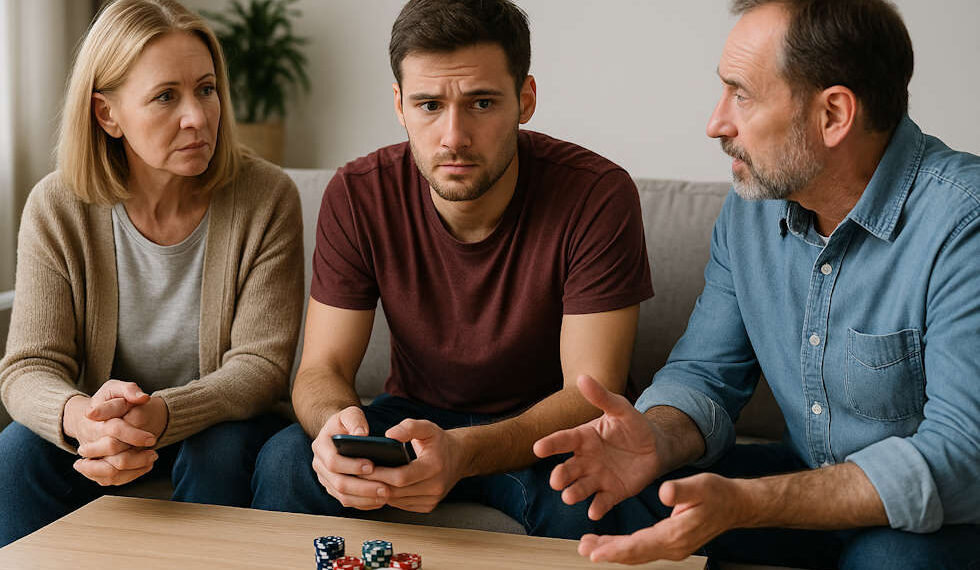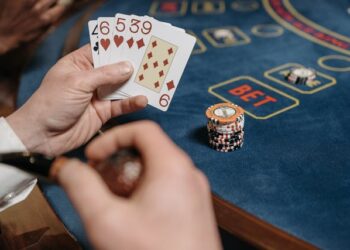Maintaining a relationship with a son suffering from gambling addiction can be incredibly challenging for parents. However, by taking active steps and seeking appropriate support, families can navigate this difficult situation more effectively. Below is a step-by-step guide compiled by the editorial team of GDAY77, featuring practical strategies for identifying, understanding, and supporting a loved one struggling with gambling addiction.
Understanding Gaming Addiction in General
Before diving into gambling-specific issues, it’s important to understand that gaming addiction — also known as gaming disorder — is a broader psychological condition affecting both children and adults. It involves compulsive engagement with video or online games, often leading to a loss of control, neglect of responsibilities, and emotional distress.
The World Health Organization officially recognized gaming disorder as a mental health condition in 2019. It typically develops gradually, beginning as harmless recreation and evolving into an excessive coping mechanism for stress or loneliness. People affected may experience irritability, isolation, disrupted sleep, and a detachment from real-world relationships.
The difference between gaming addiction and ludomania lies in motivation: gamers often chase achievement and social validation, while gamblers pursue financial gain and risk. However, both activate similar neurological responses — particularly increased dopamine release — which fuels dependency and makes quitting difficult.
Understanding this distinction helps parents recognize early warning signs and take preventive action. Addressing gaming-related issues early can stop them from escalating into more serious gambling-related addictions later in life.
What Is Gambling Addiction?
Gambling addiction, also known as ludomania or pathological gambling disorder, is a recognized mental health condition characterized by an uncontrollable urge to gamble despite negative consequences. Similar to substance or alcohol addiction, it involves compulsive behaviour and falls under the ICD-10 classification F63.0 – pathological gambling.
Gambling addiction can manifest in destructive ways, leading to severe issues such as job loss, family breakdowns, debt accumulation, and even criminal activity. Prolonged stress, emotional distress, and the thrill of risk are common triggers that push individuals toward excessive gambling behaviour.
How to Recognize Gambling Addiction
Identifying gambling addiction requires observing behavioural, emotional, and financial signs. Financial distress is one of the main indicators: addicted individuals lose control of their spending, take out loans, and accumulate debt while chasing elusive wins.
Emotional instability often follows — including mood swings, anger, depression, and even suicidal thoughts. Behavioural changes can include neglecting appearance, withdrawing from social activities, and prioritizing gambling over personal relationships and responsibilities.
Additional symptoms include constant urges to gamble, anxiety when trying to quit, failed attempts to stop, and an obsession with recouping losses.
How Gambling Addiction Develops
Much like drug addiction, gambling dependence progresses through several neuropsychological stages. Initially, the excitement of winning triggers euphoria and the desire to repeat that feeling. Even small wins can ignite the cycle.
As losses mount, players often try to recover by betting more, draining savings, or borrowing money. This leads to the stage of recklessness, where impulse and risk dominate decision-making — sometimes resulting in theft or other illegal actions to finance the addiction.
Eventually, the stage of hopelessness sets in, where gambling no longer provides relief but deepens despair and isolation. Many gamblers also develop co-occurring addictions or mental health disorders, making treatment more complex.
Stages of Gambling Addiction
Psychologists generally classify gambling addiction into episodic and chronic forms, progressing through identifiable stages:
- Lack of interest: The person shows little to no interest in gambling activities.
- Initial experimentation: They begin gambling occasionally for fun or curiosity.
- Emerging family issues: Gambling begins to strain relationships, finances, and emotional balance.
- Full interference with daily life: Addiction extends into work, social, and financial areas, leading to neglect of duties.
- Severe addiction with consequences: The person faces financial ruin, legal trouble, and emotional distress, often losing control entirely.
Recognizing these stages helps families seek professional support early, preventing further harm.
Neglecting Family and Friends
One of the most visible consequences of gambling addiction is social withdrawal. Addicted individuals begin prioritizing virtual interactions and gambling over real relationships, leading to emotional distance and loneliness. Loved ones may attempt interventions, but often face denial or defensive reactions.
How the State Helps People with Gambling Addiction
Governments, including Australia’s, have recognized gambling addiction as a major public health issue. Australian legislation now includes measures to prevent citizens from overextending themselves financially through gambling credit restrictions.
Authorities also collaborate with NGOs and social programs offering psychological support, counselling, and rehabilitation services for gamblers and their families.
Experts from GDAY77 have investigated how self-exclusion systems work and where individuals and families can turn for help. Those affected can reach out to the Australian Institute of Health and Welfare or submit inquiries through official feedback forms online.
Additionally, specialized clinics across Australia offer professional treatment programs for gambling addiction. These clinics employ trained therapists who provide behavioural therapy, emotional support, and long-term rehabilitation plans. Families are encouraged to review treatment feedback to find the most effective recovery options.
Initiatives like those promoted by Nine emphasize responsible entertainment, encouraging players to set limits and approach gaming as a balanced recreational activity rather than a coping mechanism.
Frequently Asked Questions
Can gambling addiction be treated without the patient’s consent?
Generally, successful treatment requires the patient’s willingness to participate. However, in extreme cases where the individual poses a danger to themselves or others, involuntary treatment may be considered under legal supervision.
How long does treatment typically last?
Treatment duration varies but often includes cognitive-behavioural therapy, group sessions, and counselling. Programs can last from several weeks to several months, depending on the severity of the addiction.
Does “coding” or self-exclusion really work?
Self-exclusion, also known as coding, involves blocking access to gambling sites or venues. While helpful for limiting exposure, it’s not a cure on its own and should be combined with therapy and long-term behavioural support.







